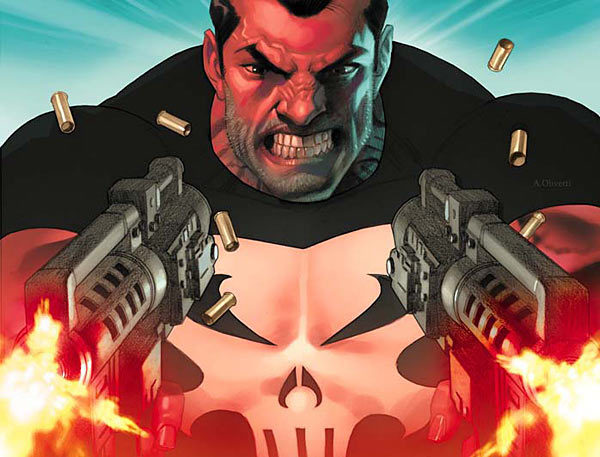Will Leitch has an interesting
article up about Zack Snyder directing the new Superman film. Among other things, he speculates why Hollywood hasn't been able to make Superman work since
Superman II:
Superman projects have vexed filmmakers as varied as Tim Burton, Kevin Smith, McG, J.J. Abrams, and Brett Ratner. The main problem with "Superman" is that we have turned into more of an antihero culture. We like Batman because he's human and flawed and full of rage and guilt. We like Tony Stark because he's selfish and vain and a party guy.
 |
| RAGE!! Because sculpted, plastic and filled with joy never caught on. |
I think Leitch's argument, while thoughtful, is flawed on several counts.
For one, I object to his definition of antihero. I don't think it's "wrong," it's just not very accurate or useful in this context. Antiheroism is relative to the values of the community being represented. Wayne might be bitter and Stark's an alcoholic, but they still embrace traditional superhero values. They seek noble ends like justice and redemption. And while they push boundaries, they rarely step outside them.
If you want a more accurate representation of antiheroes, I'd look to the Punisher and Deadpool. Punisher works outside the boundaries and Deadpool doesn't even acknowledge them. Anger, guilt and womanizing hardly compare to unrelenting homicide and madness. If they're all lumped together under the heading of "antihero," the terminology is taxed to the point of irrelevance.
 |
| "Tony didn't say anything about a cover charge!!!" |
If Mr. Leitch means only to say that we like flawed heroes, that's been true at least as far back as Moses, and it was equally true of Christopher Reeve's Superman. His motives, while pure, are still mixed. He rebelled against his father's commandment not to reverse time because of his obsessive devotion to Lois, then turned his back on humanity for the same reason in the second film. This doesn't make him bad by any stretch of the imagination, but it does highlight how we tend to pass over Superman's flaws even when they're as pronounced as Batman's.
Leitch goes even further:
Superman is, by his very design, perfect and cheesy - he's a relic, Ward Cleaver in a blue skintight suit.
 |
| "Golly, Lex, I don't know. How can we hold Metropolis hostage when we promised Superman we'd do our homework?" |
I think Leitch is confusing perfection and idealism. Perfection is essentially completion or fulfillment. Saying we can attain perfection (Idealism) isn't the same as
being perfect. By that same token, Superman can't be perfect until
we're perfect, because he exists to remind us we have a destiny. Yet Veitch's Superman seems indelibly linked to the past rather than the future:
Singer attempted to capture that naïveté and bring it to today, but his Metropolis seemed as steeped in the '50s as the Steve Reeves films were. The reason the first two "Superman" films worked was that they were rooted in a recognizable place: Metropolis was late-'70s New York City, with all the grime and cynicism that came with it. Superman was an alien (he's the one who was out of place), an actual hero here to save the day, to give everyone faith again. To believe a man can fly, you must at first believe a man cannot.
I'm agreed with Veitch that Superman's faith in humanity is the root of his alienation. That's why Superman ultimately comes into conflict with Luthor, who sees Metropolis and humanity as mere extensions of himself. If Superman were half the relic Veitch thinks him, Luthor wouldn't feel so threatened. But Luthor understands what even Metropolis can't, because he
fears it. Luthor has always believed a man can fly, which is why he devotes himself to clipping humanity's wings. And he knows where Superman
really hails from: the future.
 |
| Lex Luthor just became irrelevant. |
One of my favorite lines from
Macbeth is, "Your letters have transported me beyond this ignorant present, and I now feel the future in the instant." Superman is Lex Luthor's window into a future where power struggles are obsolete. Lady Macbeth goes mad because she cannot help but bring the future to pass; Luthor because he cannot hold it back.
If Snyder wants to make Superman work, I think he needs to tap into "The Man of Tomorrow" vibe. That's been critical to most incarnations of Superman, but the one we're most familiar with is Donner's. His Superman can't be with Lois because it's still
Today, which makes their relationship tragic and uplifting all at once. It's a metaphor for where humanity finds itself now, where we've always found ourselves, somewhere between the Fall and Redemption, Impossibility and Infinity.
When the time comes to bridge that gap in Hollywood...








